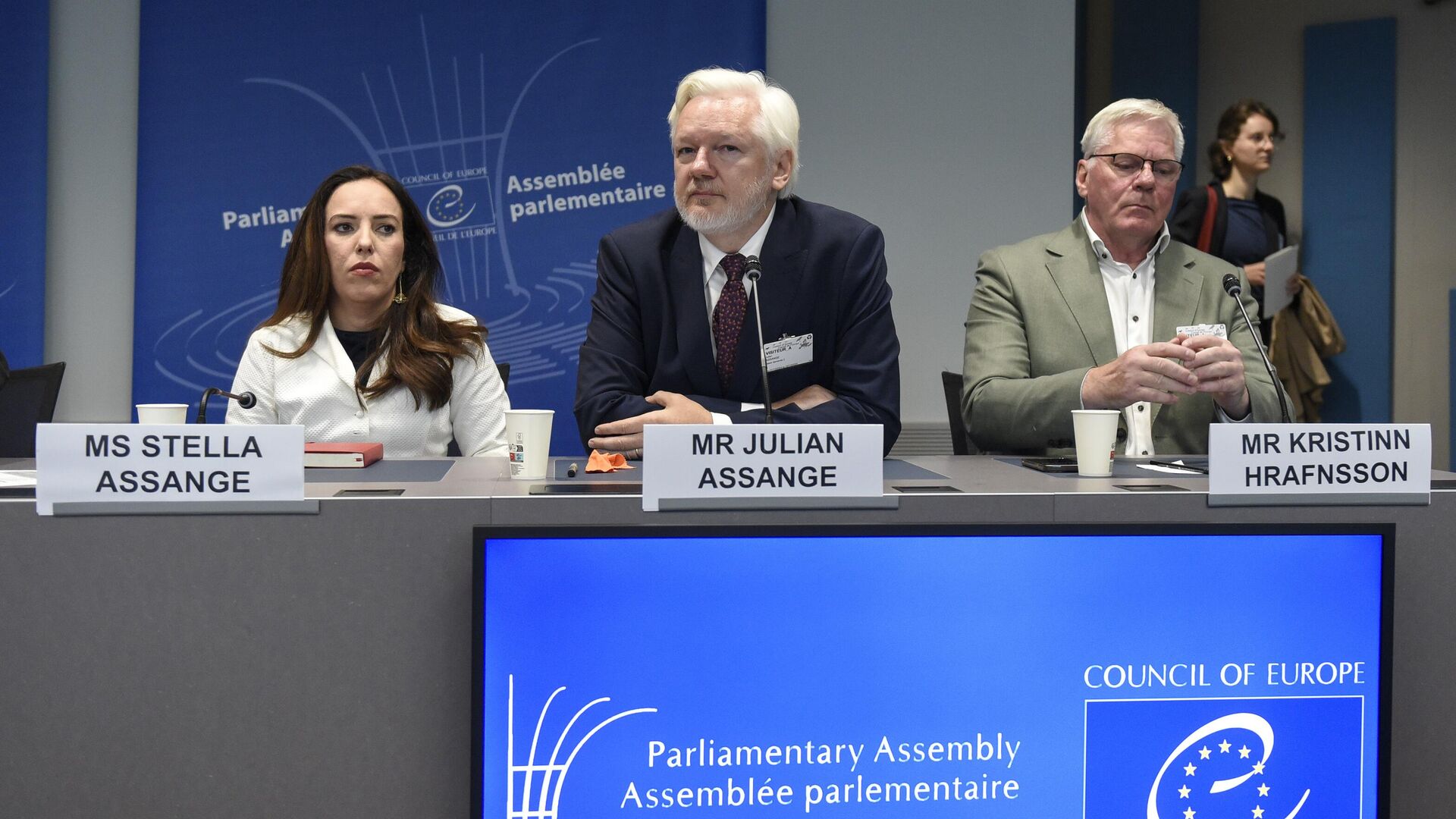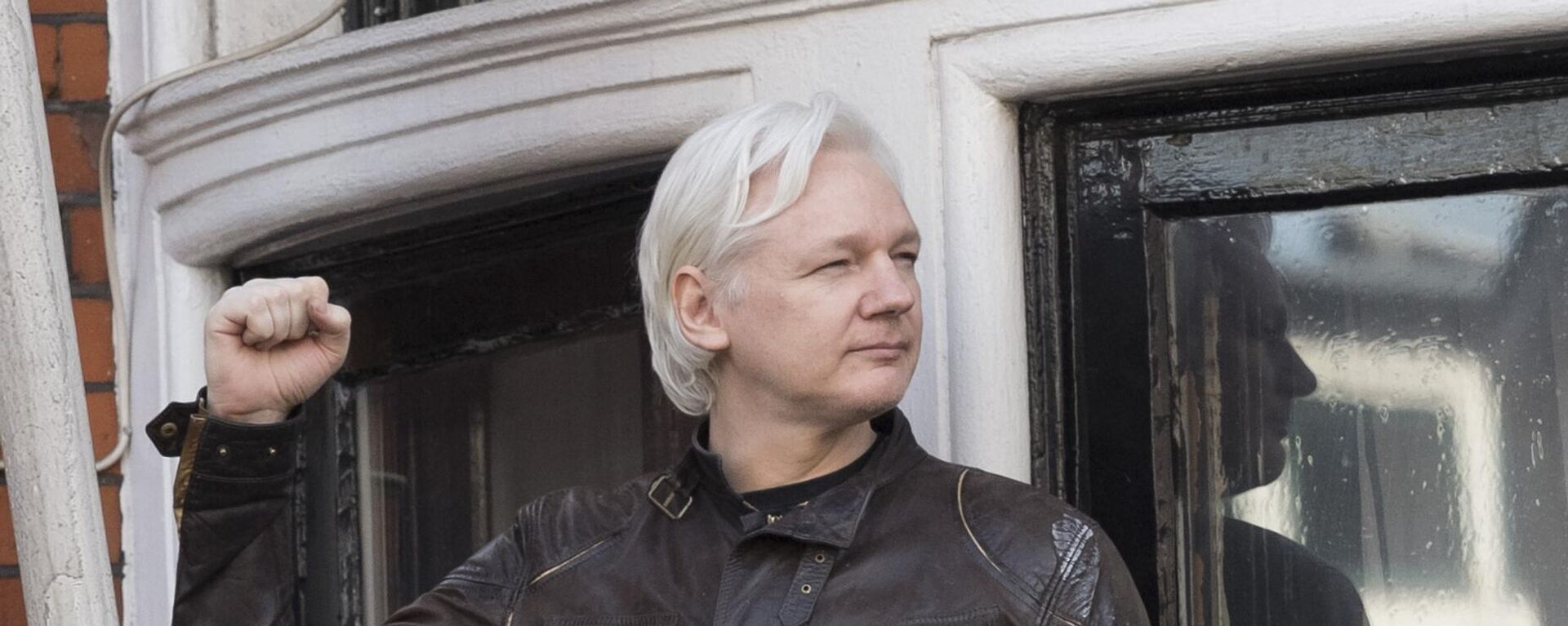'Pled Guilty to Journalism': Assange Speaks Publicly for the First Time

© AP Photo / Pascal Bastien
Subscribe
After serving five years in a British prison, Assange was released. The Australian publisher and activist pleaded guilty to obtaining and publishing US military secrets in a deal with Justice Department prosecutors following years of legal battles to avoid being extradited to the US.
On Tuesday, WikiLeaks founder Julian Assange said he was freed after years of incarceration because he “pleaded guilty to journalism.” The Australian editor who founded WikiLeaks in 2006 made his first public remarks since he was released from prison in June, and presented evidence on his detention and conviction and its effects on human rights to the Parliamentary Assembly of the Council of Europe (PACE). The assembly in the French city of Strasbourg included lawmakers from 46 European countries.
“I want to be totally clear: I am not free today because the system worked,” Assange told lawmakers. “I am free today after years of incarceration because I pled guilty to journalism.”
Prior to his arrest, he spent seven years in political asylum at the Ecuadorian Embassy in London on the grounds of political persecution.
“Let's not forget that one of the points [Assange] made was that before they engaged in their publications, they spoke to lawyers about the state of the law, both in the US and Europe, and, to understand the boundaries and the risks,” Mohamed Elmaazi, a UK-based journalist, told Sputnik’s Political Misfits on Wednesday. “And they did expect some legal, having to engage in certain degrees of legal challenges, just not to the extent that he faced, right.”
“I mean, this is the first application of the Espionage Act against a publisher for publishing activities outside of the US. I mean, there was only one case I'm aware of inside of the US where it went as far as a grand jury, and that was during the Second World War and the grand jury failed to indict,” the journalist added.
While speaking, Assange said he had “struggled to stay alive, both physically and mentally” while incarcerated. The US began pursuing Assange with an Espionage Act charge after he was accused of receiving and publishing hundreds of thousands of war logs and diplomatic cables including the US military’s wrongdoings in Iraq and Afghanistan. He pleaded guilty to an Espionage Act charge of conspiring to unlawfully obtain and disseminate classified nation defense information.
Because he already spent five years behind bars in the UK, a judge used those years as his sentence. He returned to Australia as a free man in late July.
PACE published a report on Assange’s detention in the UK, and said Assange qualified as a political prisoner. They also issued a draft resolution expressing deep concern regarding his harsh treatment. PACE also said that Washington’s failure to investigate war crimes and human rights violations disclosed by WikiLeaks in combination with poor treatment of Assange suggests the US was more interested in hiding the wrongdoings of its state agents, rather than to protect national security.
“...the fact that all of this global effort developed right in the end, the US government conceded that they didn't have any evidence during the plea agreement [of anyone] coming to harm or being killed or being injured as a result of publications, which the judge noted was important actually when accepting the plea agreement,” Elmaazi noted.
“And, this resolution to come from the Council of Europe that, I think, assists in, at the very least, politically to make it more difficult because these are the end of the day political decisions,” he added. “...at the end of the day, laws are just words on a piece of paper, right. What matters is power, right. And the various interests, how far they believe they can push things.”
“...you'll always be able to find people who can interpret the law, just as it's been interpreted, the Espionage Act has been interpreted in particular ways to go against Julian. I would also find the US is applying and has applied its domestic criminal law extraterritorially, right, outside of what would be recognized as legal jurisdiction against people who are non-US citizens for activity and behavior they engaged in outside of the US,” he added.
“And that is imperialistic and all the rest of it. But it does still require a degree of complicity from, you know, not just a degree, meaningful complicity from British judges, right. UK judges and the UK prosecution,” Elmaazi said.


